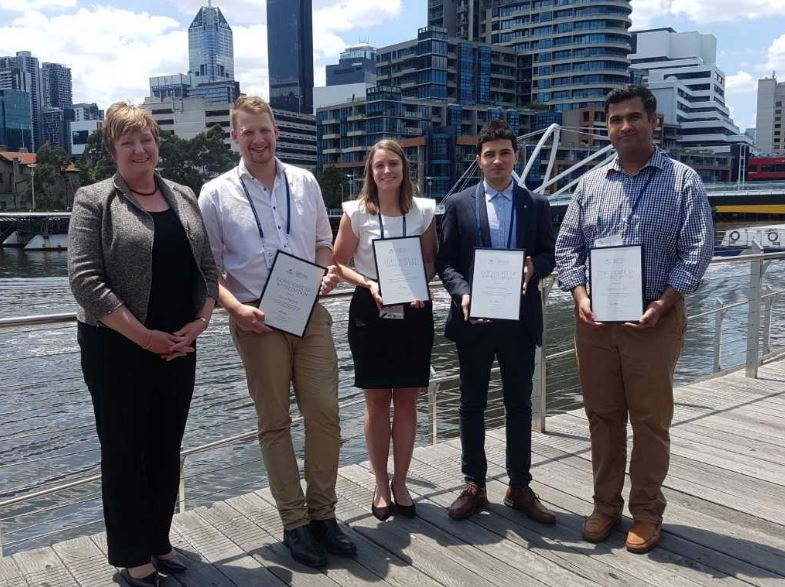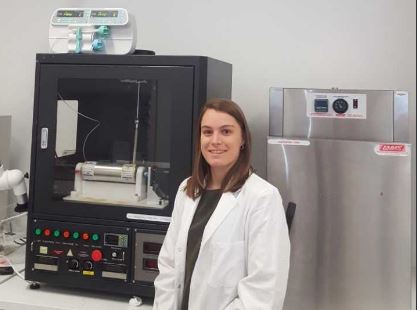
The use of nanotechnology for targeted drug delivery has seen higher degree researcher Melanie Fuller present at a national defence forum in Melbourne.
The molecular science PhD received a $500 prize from Melbourne University after she gave an outline of how an antibacterial nanomesh could be used for medical applications
Run by DST Group, the Emerging and Disruptive Technology Assessment Symposium (EDTAS) held at Cargo Hall, South Wharf last month brought together leaders in the materials field to assess the relevance of new technologies to the future of defence.
“In 2017, I spend three months on an internship at the National Institute of Materials Science (NIMS) in Japan where I worked on the development of an effective antibacterial wound cover using a nanomesh,” Melanie says.
The work is now continued using special instrumentation at Flinders, including the electro-spinner at the Advanced Materials Lab at Tonsley.
“I was successful in producing a mesh which had antibacterial action against certain bacteria and I have started developing it further for applications including bandages for burns victims as well as implantable meshes which dissolve after surgery.
“This work involves spinning a nano-meter thin mesh and adding mixtures of currently available drugs into the mesh system. It is then tested on bacteria to determine if it can kill or prevent bacterial growth from occurring.”
The work continues a theme started by another Flinders nanotech graduate, Jakob Andersson, who completed PhD in membrane biophysics last year.
He had developed a model of the outer membrane of Gram-negative bacteria that can be used to test new antibiotics and better understand how current antibiotics disrupt the cell membrane.
Recently, he has started working at the Austrian Institute of Technology to develop methodologies of using lipid membranes in graphene-based field effect transistors.

Flinders Centre for NanoScience and Technology Associate Professor Ingo Köper, who supervised both PhDs, is going to Austria later this year to discuss research collaborations between the Australian Institute of Technology in Vienna and Flinders University.
“Our PhDs and other graduates are paving the way towards more international collaborations which will allow us to strengthen our research portfolio, especially in the area of nanotechnology and health,”Associate Professor Köper says.

